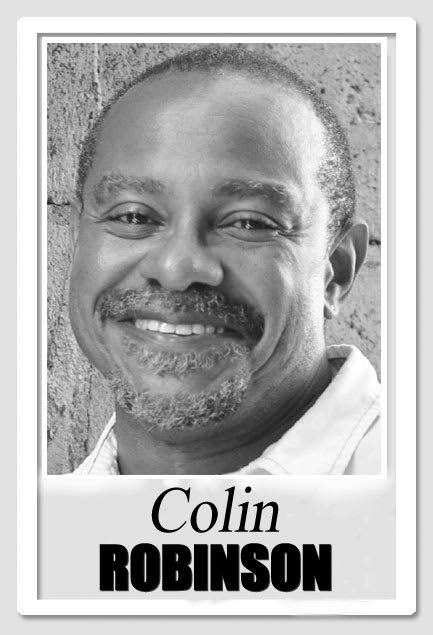The European encounter

Did you listen?
I did. To all 16 hours of the domestic violence bill debate. In both houses.
It left me exhausted. Like the US MP Maxine Walters, I’d love to reclaim almost all of that speaking time. Each of those thousand minutes convinced me irrevocably that we’ve got to find a better method of legislating.
The parliamentary and public debate of the bill, further, left me confused by so many things. And a bit speechless actually. When the TV news station called for comment, the best I could do was not to cry.
Is a same-sex dating relationship eligible for an order of protection? What was the specific amendment that Independent Senator Hazel Thompson-Ahye proposed – and why doesn’t the public get to see these changes “as circulated” that legislators make to a bill published on the Parliament website? What does letting people under the same roof who aren’t related have access to an order of protection for domestic violence have to do with the sodomy laws? Or the savings clause? Why did ten senators abstain on the vote? And why is Jason Jones saying Attorney General al-Rawi was acting in the best interest of LGBTI people? Why would anyone wait years for justice from British lawlords when voting or lawmaking could deliver it sooner?
I confess that I don’t have answers to any of these for you this week. Come back next week; I promise to have figured some out.
I do have my own answers, though, in another debate that has been grabbing the headlines – the vexing question of the statue of Columbus in a Port of Spain square.
Two poignant comments rang out for me among several that have appeared in the media. One was Warao queen Donna Bermudez-Bovell reminding Mayor Joel Martinez of the violence of Kairi’s encounter with Europeans: “I am fed up passing and looking at that statue on a pedestal where this man killed out my people. Raped, killed, fed the babies to dogs.”
Another is Marina Salandy-Brown’s comment in these pages that “Taking down the statue ... does not alter the facts and, perhaps, it removes any casual opportunity to tell the epic story of how the western world developed.”
While the country has devoted considerable national effort and ritual to contemplating our relationship to several routes in our heritage, we appear to have given stunningly little focus to the most seminal of all – the European encounter.
Colonial narratives wrote this off well past Independence as “discovery.” But in our embrace of the primary school-like clarity, as Shadow sang, that Columbus “discovered a lot of Indians who discovered the land before...the truth of the story those lands were discovered already,” we’ve ignored the monumental nature not just of the violence Bovell recalls but, as Salandy-Brown reminds, of Columbus’s arrival in the Caribbean as a pivot in global history.
Port of Spain’s City Council hit a brilliant stroke a few years back by renaming Queen Janelle Commissiong Street. The city, with its historic name, could similarly be the ideal space for a simple yet globally significant interactive museum to the European encounter that could contribute to the revitalisation of east Port of Spain.
But there’s another conversation about Columbus worth having with each other. One – about crossroads – that springs entirely locally, and not from the coattails of any global movement to topple monuments to violence.
Unlike Bovell and her Warao kin, for the rest of us, who we are able to be as Trinbagonians is shaped as much by Columbus’s arrival as the arrivals that followed. As much as violence characterises Europe’s encounters with all our other ancestors (Shadow sings Columbus’s “passport was violence”), we are as indelibly European as we are African, Chinese, Indian, Lebanese, Meriken, Syrian, or anything else. (And it’s not a matter of glamourising European conquest, as some of the characters in the Columbus debate have tried.)
It’s about the hybridity of Caribbean identity. How to take account of the fact that that European encounter is as fundamental an element of who we are as a modern Caribbean people as anything else.
Where and how do we take the opportunity to contemplate that? Casually, as Salandy-Brown proposes.


Comments
"The European encounter"